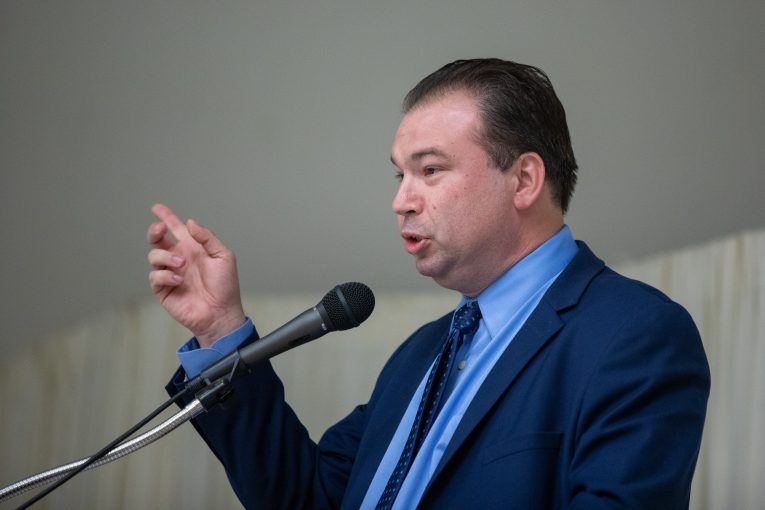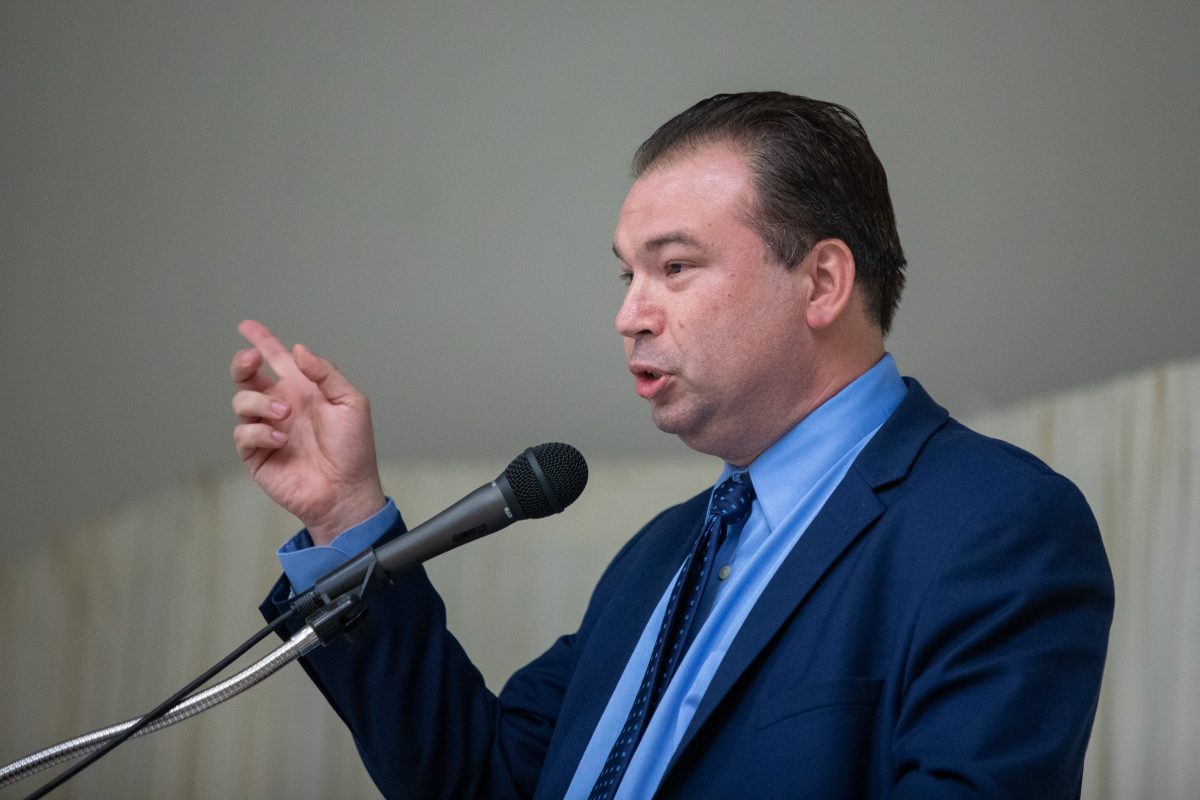

By Jeffrey Deskovic
“Looking back” will feature reprints of articles that Jeff previously wrote while a columnist at The Westchester Guardian, which encompass topics that are applicable here in CA as well as across the country and not simply applicable to NY.
At a time that we are just now beginning and come to grips with the scope and magnitude of prosecutorial and police misconduct throughout the united states, as more and more factually innocent persons are being exonerated, any suggestion that we might entertain a suspension or limitation of Habeas Corpus can only be understood as the product of a misinformed and/or wrong headed mentality. Given the extreme odds against any individual incarcerated as the result of the concerted wrongful efforts of police, prosecutors, and supporting conspirators such as medical examiners and forensic experts, it is necessary to preserve the vehicle of habeas corpus as a process by which injustices can be corrected. Joseph L. Hoffman and Nancy King, each a law professor, Hoffman at Indiana university and King at Vanderbilt university, are the authors of the forth coming book Habeas For The 21st: Uses, Abuses, And The Future Of The Great Writ, and a recent New York Times op-ed entitled Justice, Too Much And Too Expensive, advocate in each piece limiting Habeas Corpus to “capital cases and cases in which the prisoner can produce persuasive new evidence of his innocence.” In support of their position, they make several arguments:
Cost-Benefit Analysis: “More than 17,000 new petitions are filed each year, each one consumes the scarce resources of federal and state governments while less than four tenths of one percent obtain any kind of relief.” elaborating further, they say, “each petition challenges the constitutionality of the prisoner’s conviction or sentence, even though that conviction  and sentence already has been affirmed by at least one state court, and sometimes several.”
and sentence already has been affirmed by at least one state court, and sometimes several.”
Finality Must Trump Perfection: except in capital cases or ones containing persuasive newly discovered evidence.
In The Modern Era, State Judges Are Now Sufficient To Enforce Federal Rights: in bygone eras state judges were not willing to enforce constitutional rights, whereas they are now willing to do so, spurred on by previous of the use of the Writ, and now, having served its purpose, the Writ is no longer needed to accomplish that goal.
Most Petitions, Having Been Filed By Prisoners, Are Difficult To Understand: The positions asserted come across as lacking a ground level comprehension of the frequency of wrongful convictions and systemic deficiencies that lead to and perpetuate the same; they presume that nearly everyone is guilty; why bother with all this unwarranted extravagance in the first place? They also argue that cases brought are essentially frivolous. But the federal government admits that ten percent of the two million people, or two hundred thousand, behind bars are factually innocent.
With respect to their proposed capital punishment limitation, as I see it is no less important to correct injustices in non-capital cases than it is in capital cases. Turning to the ‘newly discovered persuasive evidence’ proposed exception, when determining an innocence claim, a reviewing court needs to take into account all the facts and evidence, whether newly discovered or otherwise. Would it not be an injustice to continue to incarcerate a factually innocent defendant merely because the evidence of innocence was previously unjustly ignored? Beyond these points, I feel compelled to point out further flaws in their reasoning.
Cost Benefit Analysis Argument
The average length of time served by the wrongfully convicted is twelve years, and often they have long since exhausted their appeals. The fact that state courts have previously reviewed a case and affirmed does not mean their decision is accurate. Better review, and more of it, is needed, not less. Limiting habeas relief would certainly lead to the exposure of fewer injustices. There should be no price tag on justice. addressing the infrequency with which habeas are granted, this could be remedied by correcting existing procedural deficiencies, such as: failure to provide counsel to the poor thereby ensuring that most claims will not be argued correctly; “Judges” being preoccupied with procedure over substantive justice; and the instinctual rubber stamp denial of obviously meritorious claims.
Finality Must Trump Perfection
What good is finality if the final product is wrong?
In The Modern Era, State Judges Are Now Sufficient To Enforce Federal Rights
As stated before, most of the wrongfully convicted have exhausted their appeals by the time they are cleared; obviously Judges, whether state or federal, are not enforcing constitutional rights, almost never suppressing coerced confessions that are later proven to be false; upholding constitutionally flawed misidentifications; allowing prosecutors to get away with misconduct; and so rarely upholding sixth amendment based ineffective assistance of counsel claims that appeals attorneys seldom bother to make them made regardless of the egregiousness of the attorneys omission or commission.
Most Petitions, Having Been Filed By Prisoners Themselves, Are Difficult To Understand
The prisoners are only filing their own petitions because neither the state nor federal government are providing them with attorneys. Once attorneys are provided, the quality of the arguments will go up, and with it their decipherability.
“Jeffrey Deskovic, Esq, MA, is an internationally recognized wrongful conviction expert and founder of The Jeffrey Deskovic Foundation for Justice, which has freed 9 wrongfully convicted people and helped pass 3 laws aimed at preventing wrongful conviction. Jeff is an advisory board member of It Could Happen To You, which has chapters in CA, NY, and PA. He serves on the Global Advisory Council for Restorative Justice International, and is a sometimes co-host and co-producer of the show, “360 Degrees of Success.” Jeff was exonerated after 16 years in prison-from age 17-32- before DNA exonerated him and identified the actual perpetrator. A short documentary about his life is entitled “Conviction“, and episode 1 of his story in Virtual Reality is called, “Once Upon A Time In Peekskill“. Jeff has a Masters Degree from the John Jay College of Criminal Justice, with his thesis written on wrongful conviction causes and reforms needed to address them, and a law degree from the Elisabeth Haub School of Law at Pace University. Jeff is now a practicing attorney.
To sign up for our new newsletter – Everyday Injustice – https://tinyurl.com/yyultcf9
Support our work – to become a sustaining at $5 – $10- $25 per month hit the link: